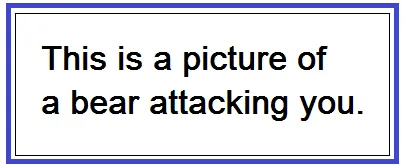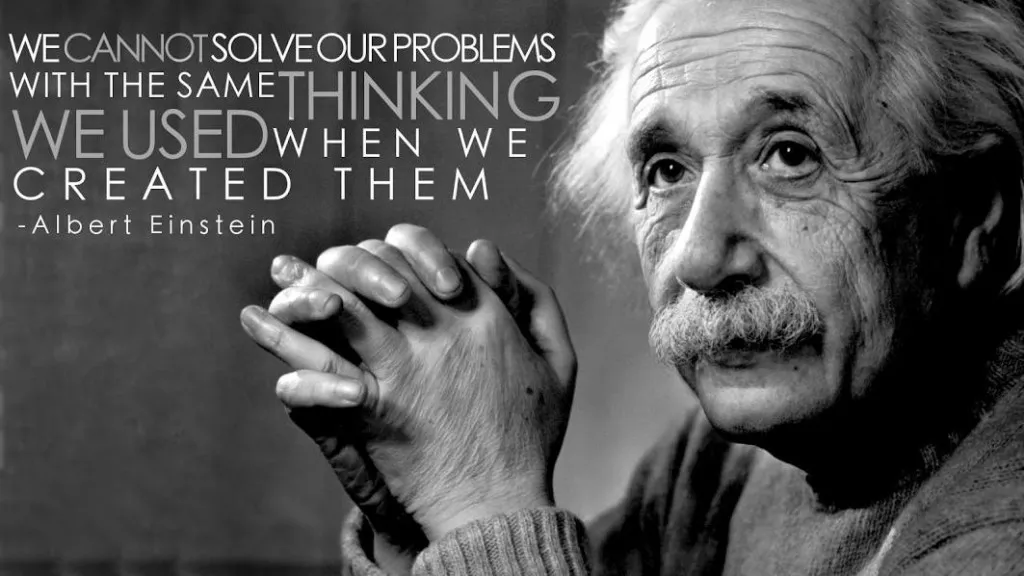When I meet people and I tell them I am a philosopher, their responses are extremely varied.
"Aren't we all?"
"Right, so what is your opinion about unicorns?"
"So you're a Doctor in the Science of Not-Knowing-Anything!?"
"Me too! I've been working on my philosophy of life that will change everything, would you mind taking a look?"
"Oh, I'm so sorry for you..."
Okay, there are also people who simply walk away. Perhaps they are the wisest of them all.
But there are also times when it seems everything is okay, they don't feel shocked at all. And I assume they're okay because they understand. And they do. But they might very well understand something completely different. Because often, later in the conversation, I realise their definition of philosophy is completely bizarre. In my understanding, that is. It's interesting, but also difficult. (So yes, this post is also for you, @AnikeKirsten and @andrewking...)
Different understandings of philosophy
Lately I've been confronted again by a particular attitude which I consider a very American one, and which concerns a specific understanding of what philosophy is. I was in the US last year, as a Research Fellow at one of the East-coast universities for six months, and I sometimes would meet other philosophers. Or philosophy students.
And I realised 'philosophy' means a lot of different things. Not just depending on the person you meet, also depending on culture and educational system. I met one guy who was finishing his master in philosophy. So naturally I asked them what he was working on. He was working on a model on 'blahblahblah' that was to predict 'blahblahblah'. I could hardly understand what he was talking about, as my brain short circuited when I heard the words 'model' and 'predict' coming from a philosopher describing his research. I asked him to clarify. Did he mean he wanted to measure 'blahblahblah', by making a model?
And then he said something I'm still trying to recover from. "Yes, because everyone wants to be able to predict the future, obviously."
(Maybe it's good to add, that what I consider philosophy, is not taught in Philosophy Departments in the US, but in French or German Departments.)
No. Philosophy is not a science.
Science is about making models. About understanding reality and making models to predict it. About testing your hypothesis, your models, to see if they hold true in reality. Models can be equations about physics, or laws of human behaviour. Let's say up front I have absolutely nothing against science. I love science. I read books on science. I studied science in my BA. And I still do.
It's just that I value philosophy, precisely because it is not science. Also doesn't aspire to be science. It doesn't consider itself more important than science (although there might be people / philosophers who might say that). It also doesn't mean I don't appreciate what people in the US do when they do philosophy that involves making models and testing them. It's just that I don't think it is to be considered philosophy.
Science - Philosophy
Philosophy questions the fundamental assumptions about what we can know, what can exist, what life is. Science doesn't. Science works with a specific set of assumptions, within a specific world in which specific assumptions are not questioned, even though they are not proven. The whole point is that certain assumptions cannot be proven, and that they remain outside of the realm of questioning.
Okay, and now in normal English?
Imagine a bear running towards you. What kind of question would a scientist ask? Well, this depends on the scientist, obviously. A mathematician might want to know the angle of the approach, to see if the bear will actually hit you or not. But basically, science would be interested in finding out how different responses lead to different outcomes. So they make an hypothesis, or several (like: running away is best, or: hide in a tree, or: if you stand absolutely still and hold in your breath, the bear won't know you are alive and run right past you). Then science would test this, get a lot of data and see which statement is correct. Then they end up knowing what the best way is to respond to a bear. They have a model that is tested in reality.

So let's go back to the same situation: a bear running towards you. What kind of question would be interesting to a philosopher? Well, this depends on which philosopher, obviously. But let's take Immanuel Kant (a philosopher who is important to both American and continental European philosophy). Kant would ask how we even know it is a bear? How do we connect one concept to something that is built up by several things? How does it work, how does the human mind make this connection? Claws, teeth, brown fur? And how do we know it is actually moving? What we see are different moments in time, different moments that our brain connects together. How then do we come up with this idea of cause and effect? Also: how do I know this bear is interested in attacking me? Maybe it wants to hug me. Is it a part of the essence of a bear to attack humans, and how do I know that a priori.
Okay, I think you might get the point. And also get that philosophy (in my definition of it) is definitely not something we should always do, or something more important than science. Especially when you meet a bear, I dare say.
Development of Thought and Science
You might wonder why I make give this example, as it seems far fetched. Well, it might. But in every scientific field, if you look closer, you see that at some point you stop doing science, and start doing philosophy. Another example, more real. Take Euclid's 'Elements'. Euclid was an Ancient Greek philosopher/mathematician and he wrote a series of books that have survived time. You can still read it, and it's highly interesting. He is considered the father of geometry. In his book he employs a specific method that makes it very explicit that he makes some assumptions about things. For instance, that a line is made up of points. That there is such a thing as a point which has zero dimensions, which you cannot see, but it does exist.
For centuries people have debated these assumptions. Those assumptions were necessary to build his geometry on, and people have used Euclids rules for centuries. And we still do, because it works. BUT. It doesn't always work. And when scientists discovered things that could not be explained by Euclid's methods (by Euclid's model), they realised that they might be dealing with something that did not fit the way they understood the world. The assumptions had to be rethought. Which resulted in other, non-Euclidean types of geometry.
So we could make the distinction between philosophers and scientists as follows. The moment a philosopher stops to think about the fundamental assumptions, but starts to work within a specific realm in which certain assumptions are taken for granted, a scientist is born. (Not to say that a scientist cannot also do philosophy...)
So why do philosophy?
So I hope I've established that philosophy is not a science. It's not more important than science. But neither is it less important than science. It is important to keep questioning underlying assumptions that might seem obvious, but they are not part of 'reality' or 'nature', they are fundamental choices, decisions once made, definitions once agreed upon. If we do not question them, science and any type of thinking can become totalitarian. It can start to dictate what can and what cannot be thought. What is right, and what is not.
Another example perhaps? Okay.
I've been involved in some projects regarding climate change. I once visited a conference in London, where the topic was 'radical changes'. The idea: things needs to change, and put a lot of natural scientists & policy makers in one room, and let them figure it out. Great idea. But they also invited me to give a short speech. As a philosopher. They referred to me as a 'French philosopher', and they don't know the kind of honour they gave me by doing so - I'm Dutch, and there haven't been any notable Dutch philosophers since Spinoza, so being considered French is a whole improvement, in my eyes...

The ideas and solutions that were offered, were ALL (yes, every one of them) intended to make a difference by approaching the problem economically. Their idea: there is a problem, there are solutions but people don't do them (UK government won't install clean energy, ships won't stop using oil to transport oil (most of the oil used is to transport oil, did you even know that?!!)), so their solution: let's make it economically interesting for people. Show people it saves money to save the world.
One value was converted into another one. The one value ($$$) we know was used to get us to like another value (greenness). Yet this makes a lot of assumptions about the world, about who we are, and it also limits our options. What if we need to take a step that is not economically viable? In this type of thinking, it is then understandable that people will not take that step.
Also, it seems to forget what has created a lot of our problems: our present understanding of value in economic terms. For instance the fact that in a stable economic system, it is not enough to break even, to have a stable company that is able to make ends meet. No, only when there is growth, added surplus, we speak of a healthy company. This is not something given, something always true, something irrevocably true. And it's philosophers who need to take up this challenge. Of not testing hypotheses in the present world, whether something fits our present understanding of reality. But to challenge the status quo, fundamentally. Addressing assumptions that are considered natural.

This quote is often addressed to Einstein, but is not his. He did say something similar ("A new type of thinking is essential if mankind is to survive and move toward higher levels."). And I still think the quote is correct. (And to dismiss the quote because someone famous did not say it, would be a fallacy...)
Philosophy is not to be restrained by what is considered reality at any given moment. Its value does not depend on its immediate and obvious applicability. Philosophy, most of all, is an attitude that is humble and considers questioning the question the most important thing. Or, as I like to say...
Philosophy is about framing the frame.
To be continued...
Perhaps it's now a little bit more clear about what I mean with philosophy. Probably it is not enough of an explanation. And I'm looking forward to your questions, which I might not all be able to answer in the comments, but might point me in the direction on how to address this question further.
Looking forward to you comments, questions, thoughts, fury.
Picture source: The picture of the bear attacking you, is mine. Of course inspired by Foucault. Green blog by saving money picture / Einstein picture